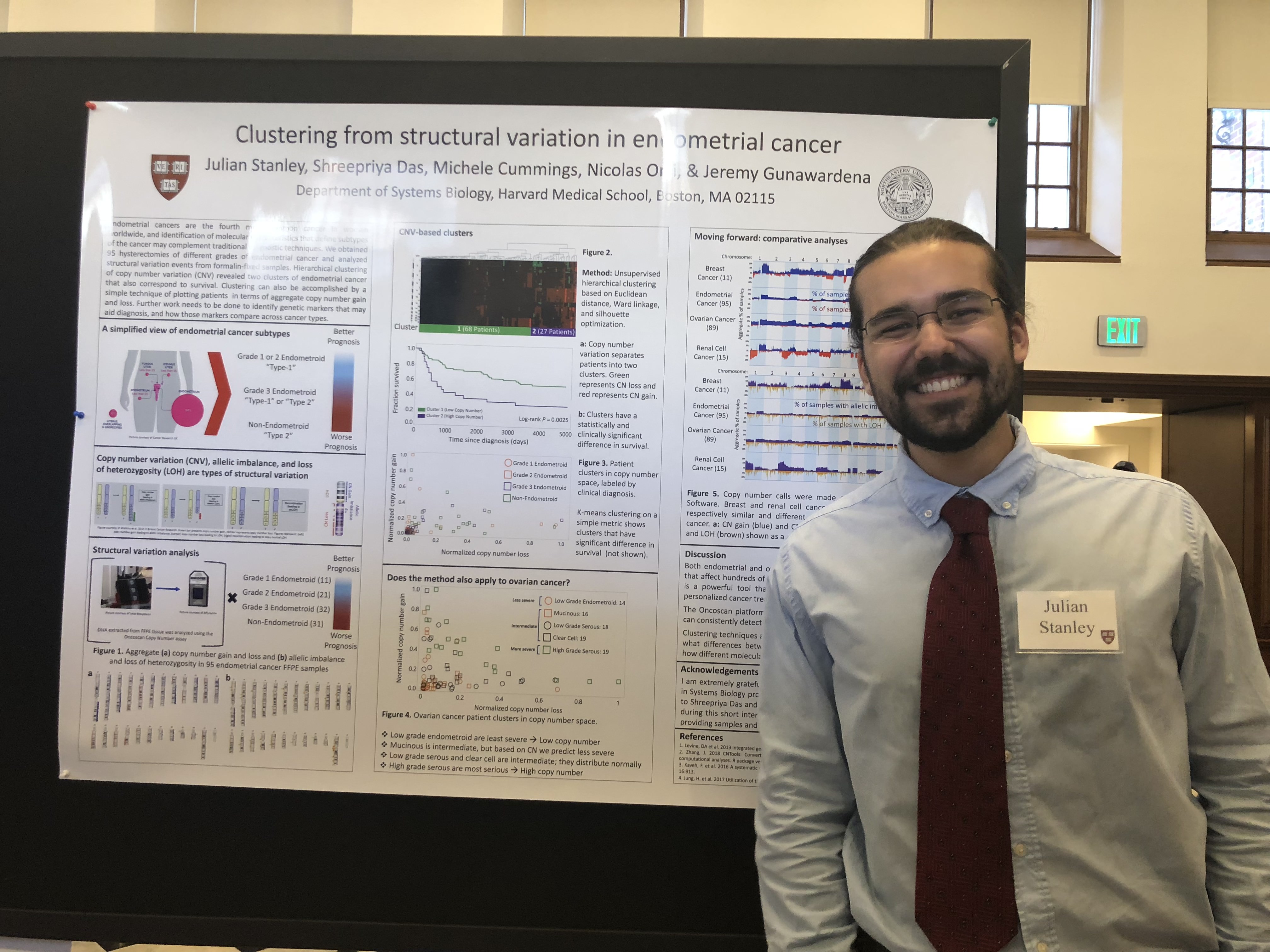What motivated you to pursue a PlusOne master’s degree?
I joined Northeastern in the biochemistry program on a 5-year, 3-co-op plan. I already had an interest in bioinformatics, but the Bioinformatics PlusOne program had not been approved yet. During my third year, I wanted to learn more technical skills, so I briefly switched to the “Biology and Computer Science” combined program.By the beginning of my fourth year, I learned that the Bioinformatics PlusOne had been approved. I also learned that I could finish the BS Biology/MS Bioinformatics PlusOne in the same amount of time and credits as my 5-year undergraduate program.
My choice to join the program came after consultation with a variety of members of the faculty and staff. Professor Steve Vollmer initially told me about the program, and I also received thoughtful advice and guidance from Professors Veronica Godoy-Carter and Erin Cram, academic advisors Amy Carmack and Mark Bresnihan, and program assistant Melisa Brown, among others.
Can you tell me about your overall experience as a participant in the PlusOne program?
The two biggest benefits for me were in teaching and co-op. I spent my PlusOne year as a TA for BINF6308 and BINF6309, the two core introductory courses in the Bioinformatics curriculum. As a graduate TA, I was given much more independence and responsibility than as an undergraduate TA. I felt really lucky to be able to practice teaching and curriculum development, and that experience solidified my interest in continuing to teach after finishing the program.
I also completed a 6-month co-op through the PlusOne program, where I worked as a student in the Silver Lab at Harvard Medical School. In the Silver Lab, I was given a lot more freedom and independence as a graduate student than as an undergraduate. My experience during my co-op helped to convince me that I was ready to join a Ph.D. program and further develop my ability to conduct research independently.
Would you recommend PlusOne to other students?
For me, the PlusOne program was a relatively clear choice because it took the same amount of time and money as a 5-year undergraduate degree program. Since I knew that I was interested in Bioinformatics (and not, for example, software development), and there was no undergraduate Bioinformatics program, the PlusOne program also meshed very well with my academic and professional interests.
Other students may have a more complex decision to make, especially since the PlusOne program usually requires additional tuition costs. In broad terms, the PlusOne Bioinformatics program is likely a good investment for students looking to immediately join the workforce as bioinformaticians. Students who prefer software development or intend to complete a Ph.D. are less likely to benefit from the program. I highly recommend that any student considering the program weigh their options carefully with help from family, academic advisors, and faculty mentors.
How did PlusOne and COS help shape your interests and/or prepare you for your future?
COS as a whole has played a huge role in shaping my interests and plans.
My research in COS, advised by Professor Javier Apfeld and supported by the Honors Program and Undergraduate Office of Research and Fellowships, was undoubtedly the activity that had the largest impact on my interests and future. In conjunction, advice and mentorship that I received from faculty and staff like Professors Sue Powers-Lee, Erin Cram, and Veronica Godoy-Carter (to name just a few), academic advisors like Danielle Massey, and my friends and classmates were invaluable.
The PlusOne program itself also helped to shape my interests. It gave me a year to focus on my skills in bioinformatics and computational biology and to hone my specific research interests before beginning my Ph.D. Through the program, I spent a year splitting my time between learning, teaching, and conducting research, which helped convince me that I would be comfortable continuing to learn, teach, and conduct research during my Ph.D. and beyond.
What do you plan on doing post-graduation?
Right now (Summer 2020), I am working as a software engineering intern for the R Project for Statistical Computing (funded by Google Summer of Code). In the fall, I will join the Biology Ph.D. program at the Massachusetts Institute of Technology. I hope to continue teaching and conducting increasingly-independent research professionally.
Best of luck in your future endeavors, Julian, from everyone at the College of Science! We can’t wait to see what you accomplish next.

